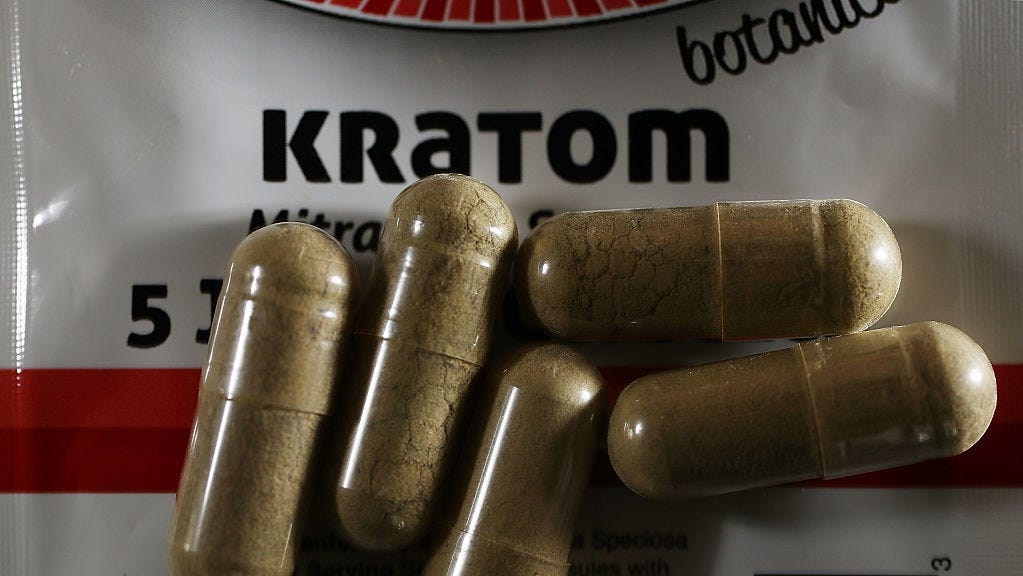
What is kratom and is it addictive? The controversial supplement, explained
Experts warn the herbal supplement kratom may be addictive like opioids as the FDA moves to restrict its potent compound 7-OH.
Athletes are always looking for the latest, greatest ways to help them boost their performance. Is taurine the way to that?
Some medical studies have found taurine, an amino acid, to help with athletic performance, heart health and exercise recovery. But health experts say the truth about taurine is a bit more complicated than simply saying it’s good for you.
Caroline Thomason Bunn, RD, CDCES, shares everything you need to know about taurine, including what it is, how it’s used and when consumption may actually be unhealthy for you.
What is taurine?
Taurine is an amino acid that’s made naturally by the body and is also consumed via meat and fish, according to WebMD. Some research suggests it can help the body regulate fluid balance, heart function and the nervous system, Bunn adds.
Taurine is typically used for congestive heart failure and hepatitis, but lately some beverage companies have been promoting energy drinks infused with taurine, marketed as a boost for athletes.
“It’s added to energy drinks because studies suggest it may improve exercise performance, reduce muscle fatigue and support alertness when combined with caffeine, Bunn says. But there’s a big caveat: “The evidence is mixed and the effects are quite modest. … Most of those benefits come from foods and natural production in the body. Energy drinks may just be riding the wave of its popularity and they may not use the effective dose seen in research.”
Who should avoid taurine?
For the most part, health experts say that taurine, when consumed “at the levels typically found in food and most energy drinks,” is safe, Bunn notes. But they’re not totally necessary; recent research seems to debunk the previously held belief by scientists that the body’s natural taurine production decreases with age, which experts have said casts doubt on whether taurine supplements are all that necessary.
A study published over the summer found that leukemia cancer cells may use taurine to grow, though researchers said that finding shouldn’t be conflated with claims that taurine causes cancer. It’s also worth noting that the study was conducted in mice, not humans, meaning further research is needed.
What health experts do know is that some of the other ingredients found in taurine energy drinks aren’t necessarily the best for you.
“The main safety concern isn’t usually taurine itself, but the high amounts of caffeine and sugar that are often co-packaged with it in energy drinks,” she says. WebMD notes that caffeine can be dehydrating, which can become a problem if you’re not properly hydrating for an intense, sweaty workout.
“Unless you’re a high-performing athlete, you aren’t likely going to notice major effects of drinking energy drinks with added taurine,” Bunn adds. Instead, focus on a protein-rich diet and getting a caffeine boost when needed. Both “can definitely help you perform better and recover from your workouts,” she says.
